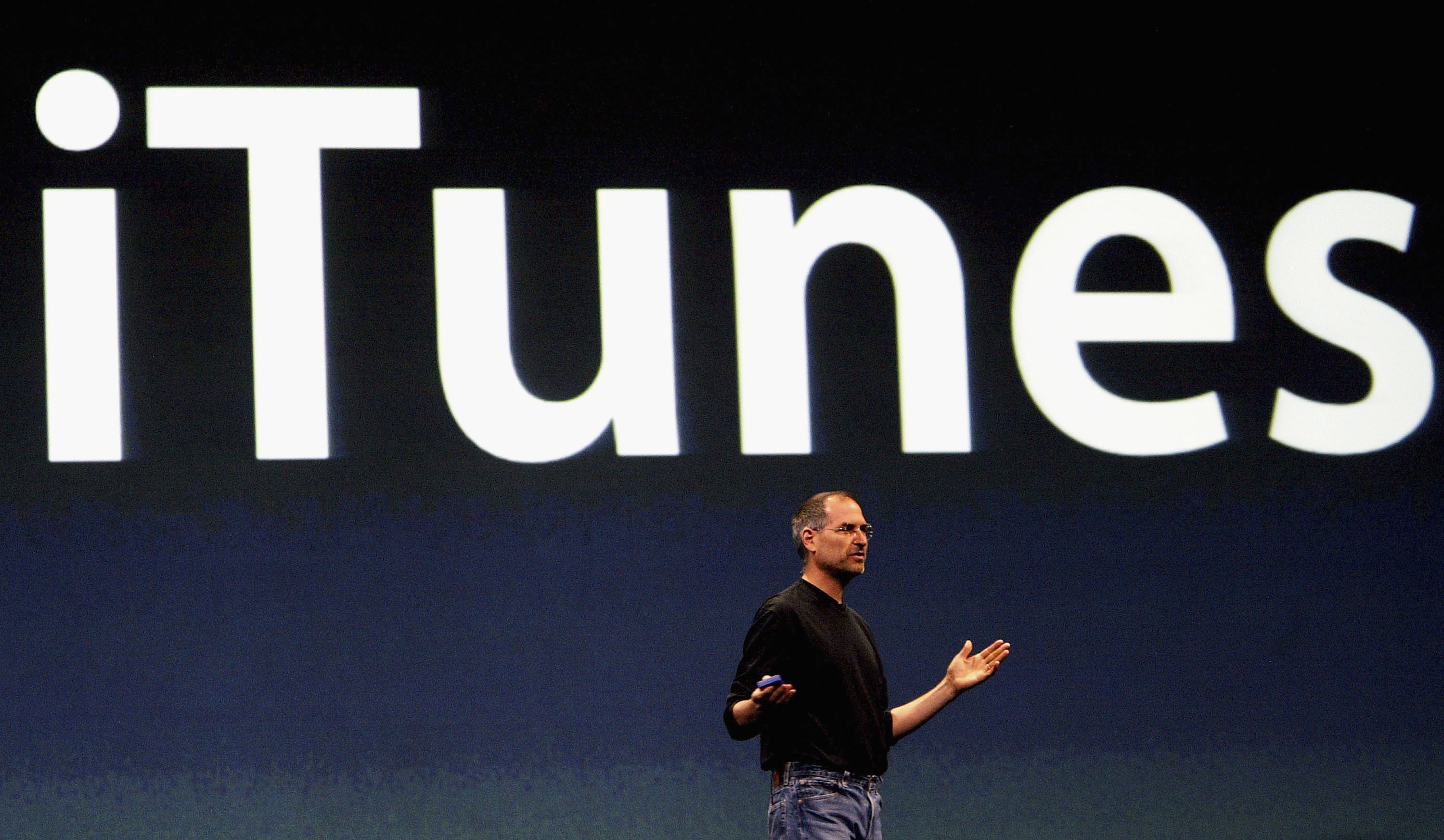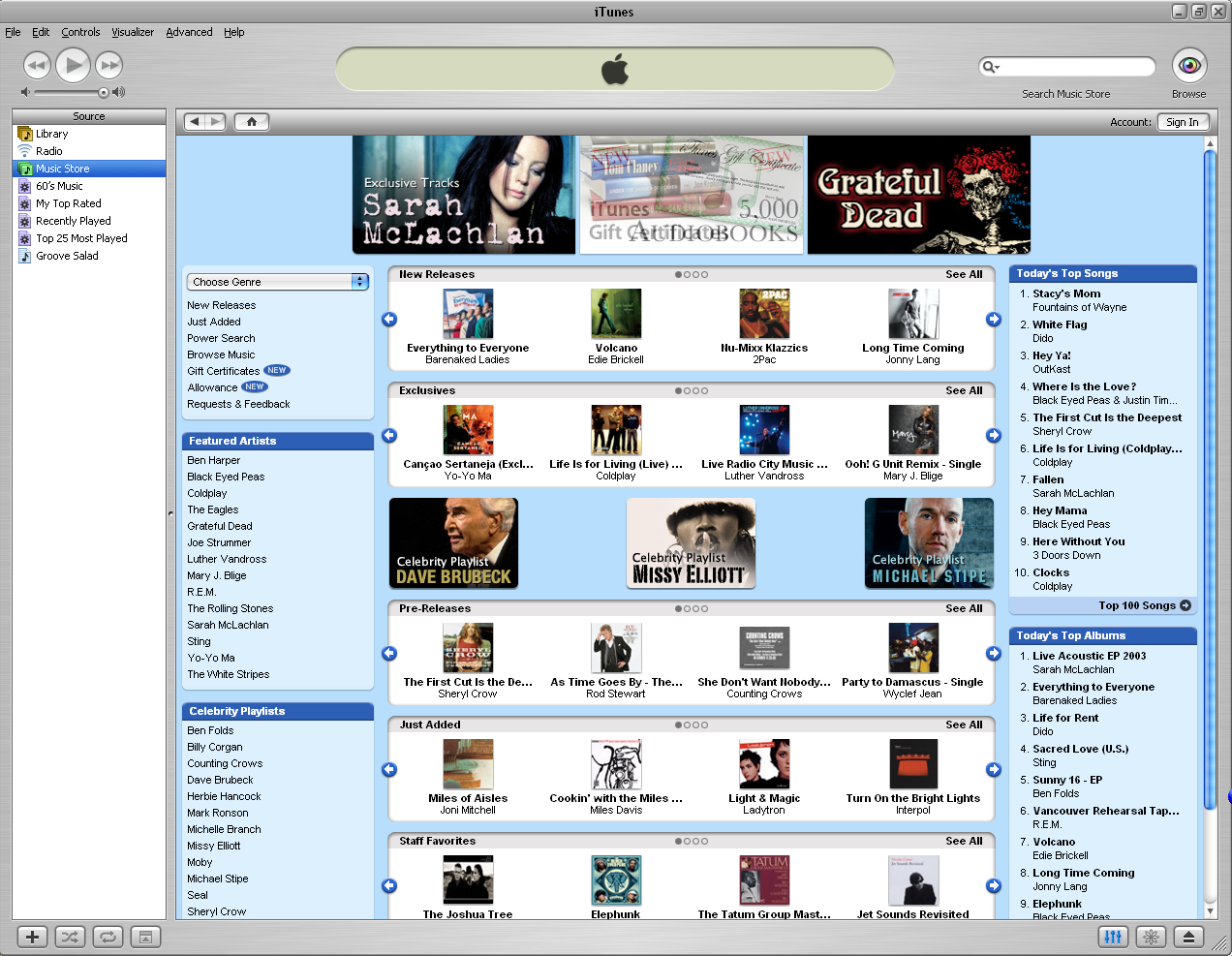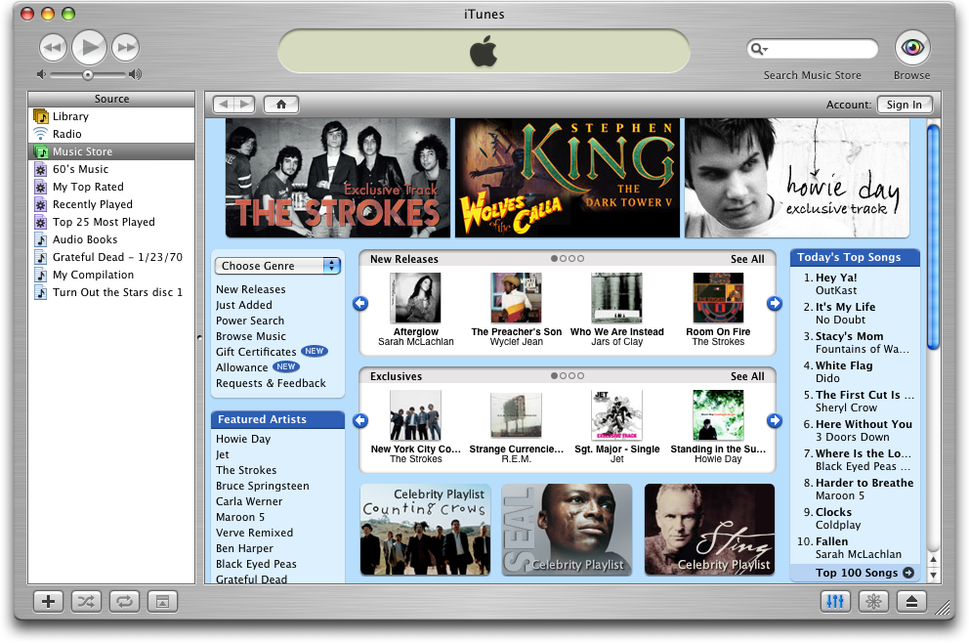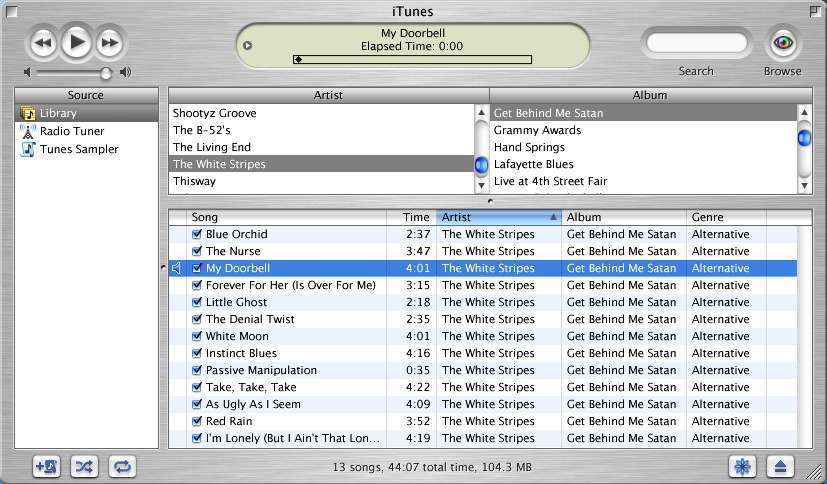With the launch of the iTunes Music Store, Apple revolutionized the music industry and completely changed the way music is distributed to listeners. In the "pre-iTunes" era, when you wanted to download a digital version of your favorite song or album from the Internet, it was usually an illegal acquisition of content from a legal point of view - just remember the Napster case in the late 1990s. The acceleration of the Internet connection, along with the mass proliferation of recordable CDs, has given people a whole new, wonderful way to create and distribute music. And Apple was largely responsible for that.
Rip, Mix, Burn
However, customers of the apple company did not have a very easy time with burning at first. Although Apple marketed the then-hot new iMac G3 as a "computer for the Internet," models sold before 2001 lacked a CD-RW drive. Steve Jobs himself later recognized this move as quite wrong.
When the new iMac models were released in 2001, a new advertising campaign called "Rip, Mix, Burn" was introduced to the public, pointing out the possibility of burning your own CDs on the new computers. But it certainly did not mean that the apple company intended to support "piracy". The ads also drew attention to the arrival of iTunes 1.0, enabling in the future the legal purchase of music on the Internet and its management on a Mac.
https://www.youtube.com/watch?v=4ECN4ZE9-Mo
In the course of 2001, the first ever iPod was born, which, despite the fact that it was certainly not the first portable player in the world, very quickly gained worldwide popularity and its sales were, without exaggeration, record breaking. The success of the iPod and iTunes forced Steve Jobs to think about other ways to facilitate the sale of music online. Apple already celebrated success with its website dedicated to movie trailers, and the Apple Online Store also gained popularity.
Risk or profit?
Convincing users that it's great to buy music online with cute ads wasn't a big problem for Apple. It was worse to assure the big music labels that moving the content to the Internet would not be a loss for them and it made a lot of sense. At the time, some of the publishing companies had failed to sell music in MP3 format, and their management did not believe that the iTunes platform could change anything for the better. But for Apple, this fact was more of a tempting challenge than an insurmountable problem.
The premiere of the iTunes Music Store took place on April 28, 2003. The online music store offered users more than 200 songs at the time of its launch, most of which could be purchased for 99 cents. Over the next six months, the number of songs in the iTunes Music Store doubled, on December 2003, 25, Apple's online music store celebrated 100 million downloads. In July of the following year, the number of downloaded songs reached XNUMX million, currently there are already tens of billions of downloaded songs.
https://www.youtube.com/watch?v=9VOEl7vz7n8
At the moment, the iTunes Music Store is dominated by Apple Music, and the Apple company is quick to catch the trend of streaming content. But the launch of the iTunes Music Store does not lose its significance - it is a great example of Apple's courage and its ability not only to adapt to new trends, but also to determine these trends to a certain extent. For Apple, moving into the music industry meant new sources and opportunities for income. The current expansion of Apple Music proves that the company does not want to stay in one place and is not afraid of creating its own media content.



